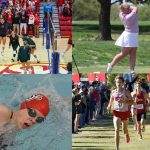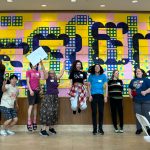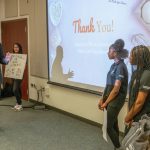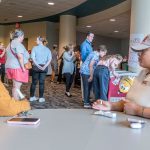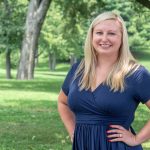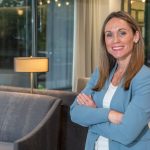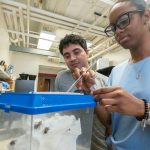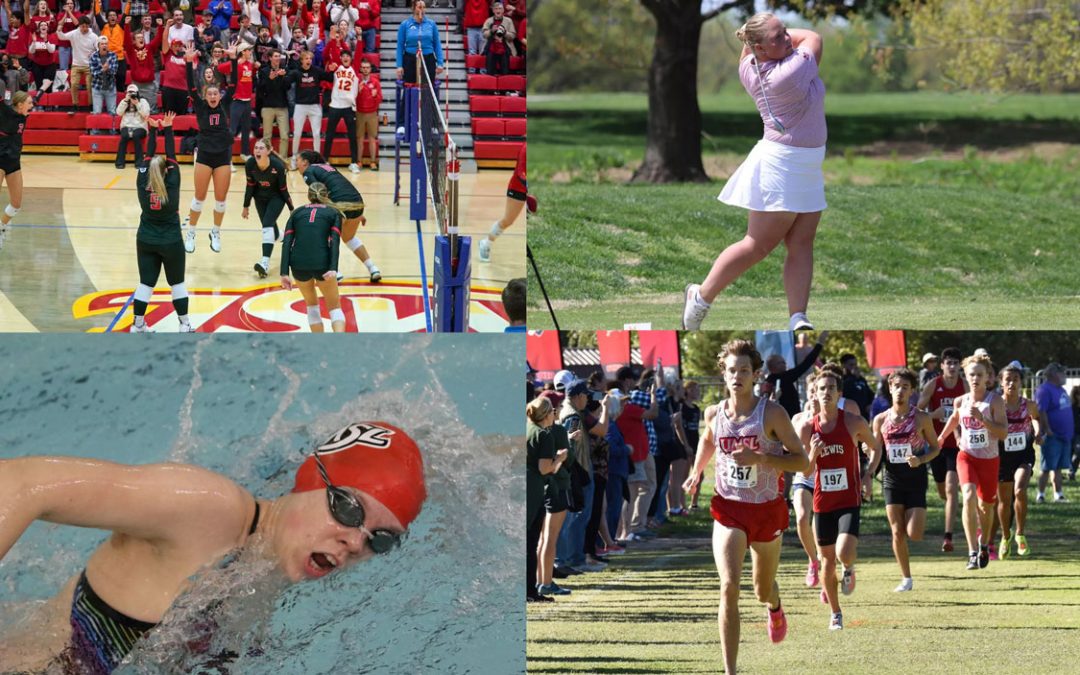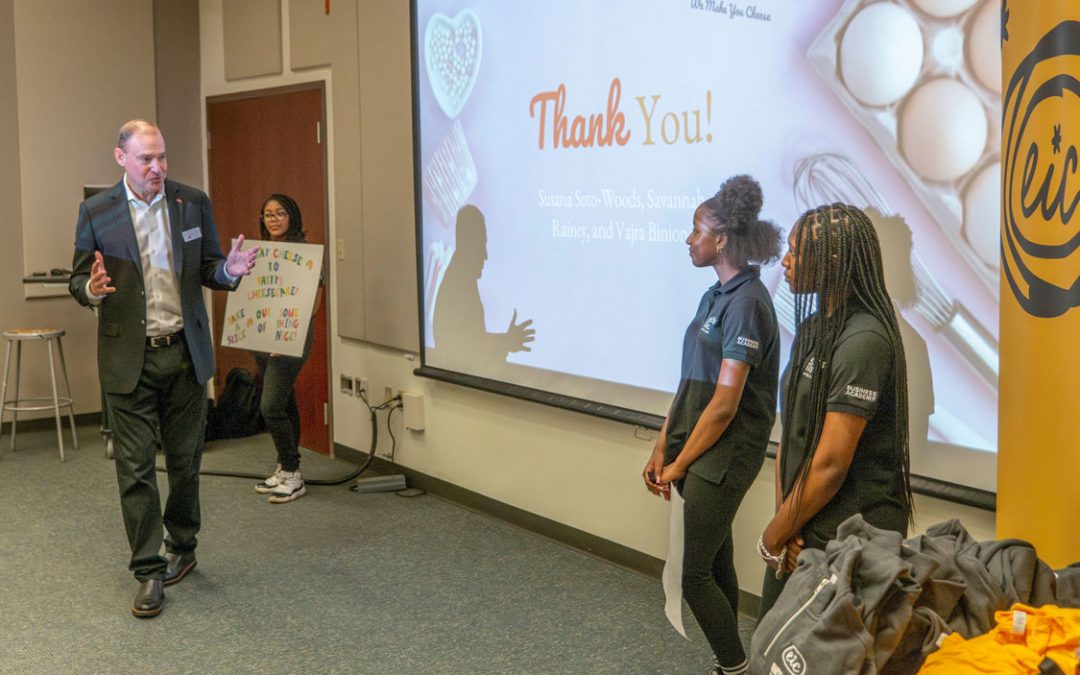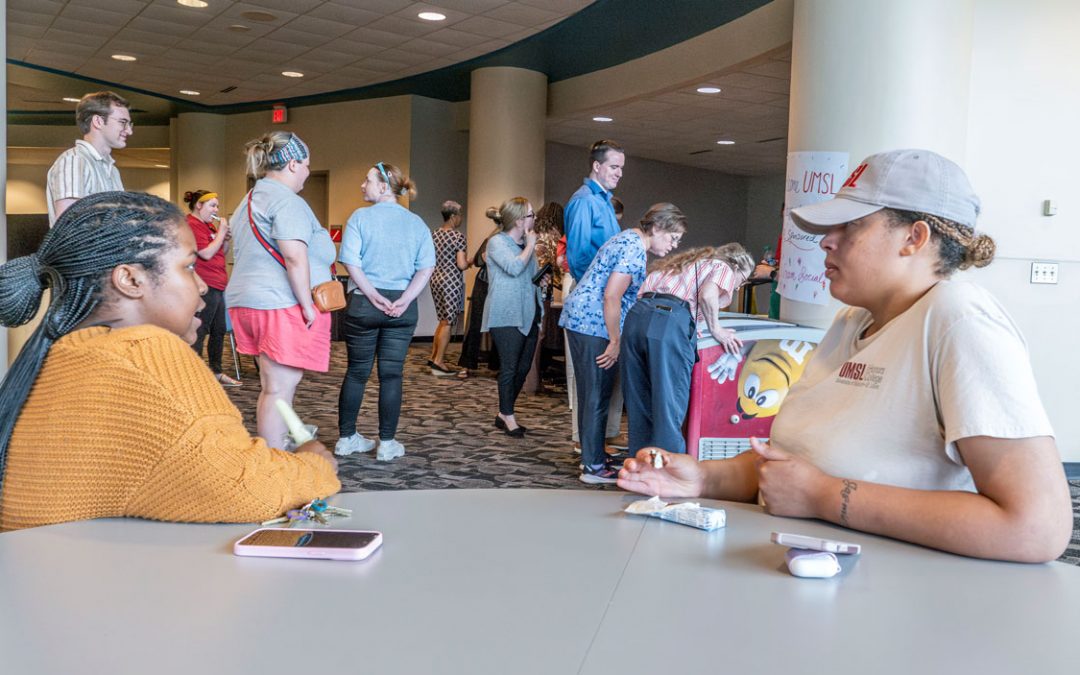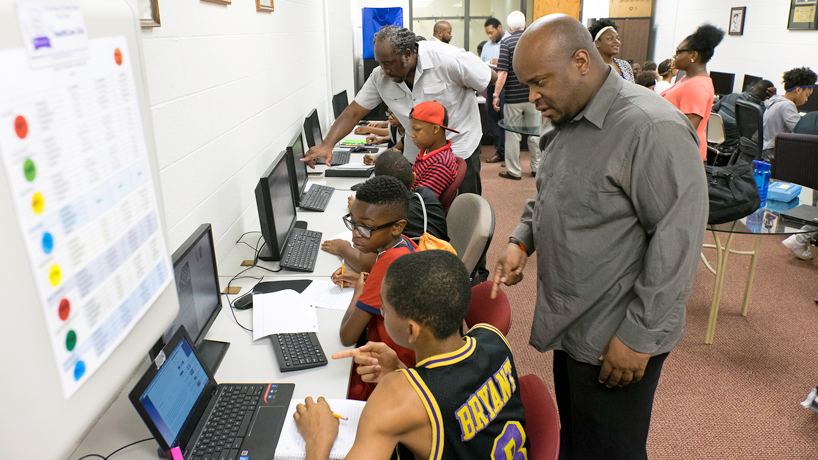
UMSL doctoral candidates Aaron H. Willis and Mario P. Charles (at right) provide one-on-one support to local youth as they work through the day’s cultural debate at Mathews-Dickey Boys’ and Girls’ Club in north St. Louis. (Photos by August Jennewein)
University of Missouri–St. Louis education alumnus Wendell Covington has dedicated himself to the student-athletes of Mathews-Dickey Boys’ and Girls’ Club. As president and CEO of the organization, he spearheads the development of programs that carve new lanes for underserved, urban youth.
“A lot of times, people have the tendency to see disenfranchised young men and women as castaways,” Covington said, “but I look at them from a counselor’s perspective. I hear their voices and see their potential. I can’t rest until they’re given the service they deserve.”
In efforts to advance this vision, Covington has coordinated with Curators’ Distinguished Teaching Professor Chuck Granger. Together they have fostered a partnership between Mathews-Dickey Boys’ and Girls’ Club, the UMSL College of Education and the UMSL College of Arts and Sciences to offer student-athletes from ages 12 to 18 the ULEAD program.
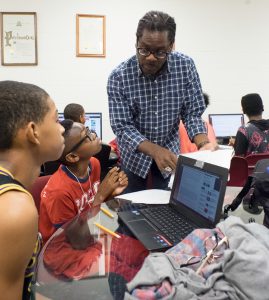
Having taught English courses at over a dozen educational institutions, including Saint Louis University and Roosevelt High School, Rodney W. Smith brings nearly 20 years of classroom experience to ULEAD students.
As the ULEAD mission statement notes, “There is a critical need for urban youth to have working knowledge of the legal and civic nuances of their communities and political state that affect their daily lives. ULEAD aims to offer young minds pathways to character development through first-hand involvement with law enforcement, the judicial system, constitutional history and the socio-economic structure.”
With these goals in mind, UMSL education doctoral candidates Mario P. Charles, Aaron H. Willis and Rodney W. Smith have created and implemented the program’s curriculum as part of their graduate research and practicum.
Charles believes this focus will go beyond the classroom and allow students to take what they’ve learned and apply it to their communities in an immediate and significant way.
“Recent events have consistently shown us that a population limited in its voice will have limited impact,” said Charles. “What better way to awaken and empower the masses than by giving the keys of collective action to our youth?”
Although the pilot of the ULEAD program is only five weeks long, Willis expects the students will continue to refine the critical thinking and negotiation skills they have practiced well into adulthood.
“Once the students are older, they will need to be prepared to become agents of change by either deciding to become elected officials or understanding what is necessary as a member of the community to demand change from elected officials,” said Willis.
Smith understands the responsibility of approaching what can seem to be an “overwhelming power structure” could be daunting to students, but the Mathews-Dickey and UMSL team understand the power of lifelong mentoring and a familial kind of support.
“I’ve had great parents, uncles, aunts and mentors who have supported me along the way,” said Covington. “Having caring adults in my life saved me, and I want to offer that to others.”
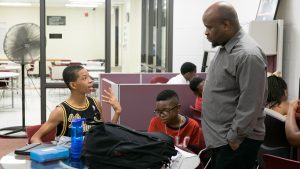
The ULEAD program encourages participants to think, speak and advocate for themselves.
Charles and Willis come from families of educators, and both say that pursuing the call to cultivate young minds was only natural. And Smith has firsthand experience of how knowledge can transform fortunes.
“As a young boy, my mother would constantly remind me of the benefits of education,” Smith said. “My mother’s ideas were a stark contrast to the poverty that was part of my everyday environment growing up in the Bronx. Since there were not many other ways out of poverty, excellence in education was the ideal to which I aspired.”
The program pilot that started on July 5 will conclude on Aug. 4, and from there, Mathews-Dickey and the ULEAD team will refine and expand the curriculum for future semesters. Over the long term, Covington plans on using the ULEAD program combined with Mathews-Dickey athletics offerings to create a national model for character and leadership education.
“I’ve done my job when I see more young people walk across that graduation stage, develop healthy relationships and become productive citizens,” said Covington. “Their success is the fruit of our labor. I want nothing more than that.”



